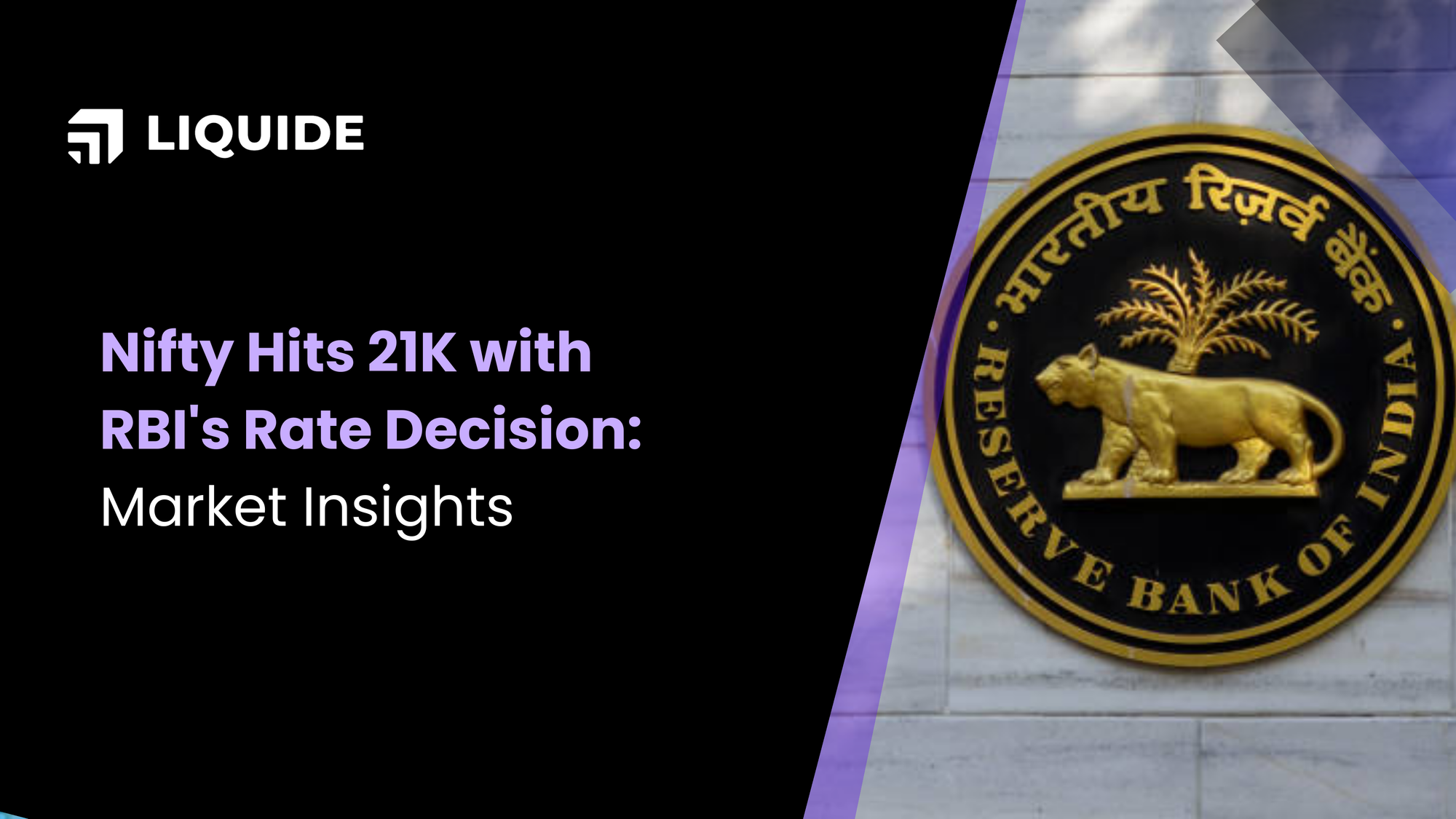RBI's Rate Decision Boosts Nifty to 21K: Impact on Indian Markets
Nifty scales 21,000, following RBI’s stable rate policy signalling robust market confidence amid economic growth forecasts.

The Reserve Bank of India’s renewed confidence in economic growth, reflected in its upward revision of the FY24 GDP growth forecast by 50 basis points to 7%, sparked a rally in the Nifty index, fuelling a wave of enthusiasm in the stock market. This surge in optimism followed the announcement of the interest rate decision, with the Nifty soaring to a new peak of 21,006 in intraday trade. While an increase in the GDP forecast was anticipated, the extent of the rise to 7%, along with the central bank's strong commentary, came as a surprise.
On December 8, the RBI decided to maintain the key policy rate, or the repo rate, at 6.5%, aligning with the predictions of many economists, highlighting its focus on controlling inflation and bolstering economic stability. The Monetary Policy Committee (MPC) has held the repo rate steady at 6.5% in its last four reviews, following a cumulative increase of 250 basis points in May 2022.
Key Highlights of the MPC’s Decision
Inflation Concerns Still Looming
The Monetary Policy Committee’s decision to keep the repo rate unchanged highlights its ongoing concern about potential inflation spikes. Governor Das has balanced his optimism for economic growth with a cautious approach towards inflation. Retail inflation, although slightly reduced, still significantly exceeds the central bank’s 4% medium-term goal, remaining above it for 49 straight months.
A key reason behind maintaining the status quo is the persistently high prices affecting various sectors of the economy. Recent trends suggest a possible resurgence in inflation, driven mainly by increased food prices, including essential items like onions and tomatoes.
The Need for Effective Policy Transmission
The MPC also seeks to ensure that previous policy decisions are effectively transmitted through the banking system. Without this, policy rate adjustments may not effectively control or stimulate demand, thus impacting inflation management.
Indian banks have not completely transferred the RBI’s policy rate hikes to their customers. Despite the RBI increasing the repo rate by 250 basis points in the previous cycle, banks have only passed on less than 200 basis points. The MPC likely intends to ensure more efficient policy rate transmission before making further decisions.
Implications for the Indian Stock Market
Looking ahead, the RBI is expected to maintain this steady approach, possibly adjusting liquidity tools as necessary. For those hoping for a rate cut, immediate relief may not be in sight. The MPC is likely to continue its cautious approach at least until the first quarter of the next fiscal year. This caution is rooted in the need for a clearer understanding of inflation trends over several months.
For the stock market, however, the signal is unequivocal. The RBI shows no signs of easing its stance on inflation, and the current economic growth provides sufficient assurance to continue its price control efforts. The central bank's monetary policy seems to be in a perfectly balanced state and this situation is ideal for a government approaching election time.
With the right sector focus and investment tools, investors could see a season of wealth and prosperity. To stay updated with real-time market insights and expert recommendations, download the Liquide app today from the Google Play Store or Apple Appstore. Don't miss out on the powerful features that can guide your financial journey. Happy Investing!

